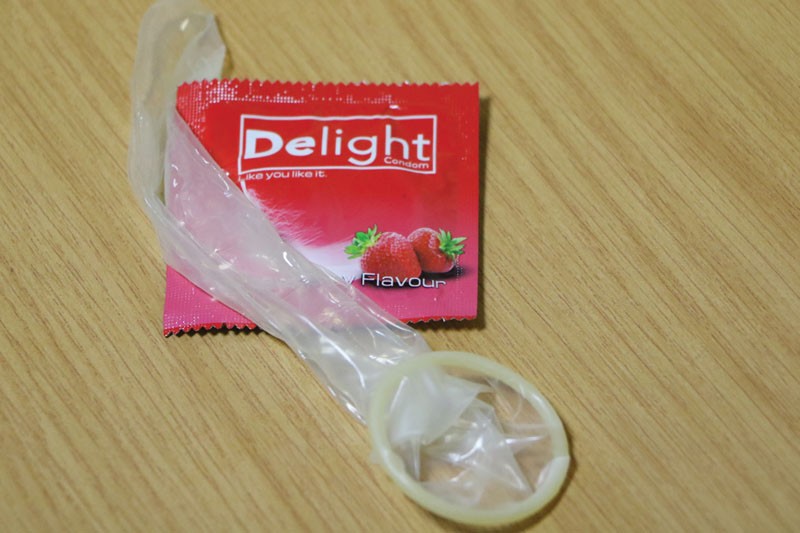Condom provision in schools ignites debate
Lesedi Mkhutshwa | Friday September 27, 2019 12:25


The problems have led to a debate as to whether secondary schools across the world should make condoms available to learners in a bid to mitigate against Sexual Transmitted Infections (STIs) and teenage pregnancy or not. Some have opined that providing condoms in secondary schools could encourage sexual activities amongst learners.
In 2017, United Nations Fund for Population Activities (UNFPA) researchers conducted a study on the impact of distributing condoms in some schools around the world.
According to the study, provision of condoms in secondary schools does not increase sexual activity, or encourage young people to have sex at an earlier age. The research, thought to be the largest review of scientific literature on the issue, found that introducing condoms in secondary schools reduced STIs and pregnancy amongst teenagers.
After the study, the organisation said it hoped more governments would appreciate the benefits of introducing condoms in schools. The organisation added that lack of access, religious beliefs, stigma, and laws stop schools from making condoms available in schools.
“Only 26 countries out of 100 that said they had a national condom strategy provided them in secondary schools in 2017, according to UNAIDS,” read parts of the study.
The debate on the introduction of condoms in schools has now reached home.
Speaking during a presentation of the Urban Development Committee at the Francistown City Council, concerned Itekeng ward councillor, Lesego Kwambala said it is time for government to start distributing condoms in senior secondary schools. Kwambala’s argument is that 59 cases of teenage pregnancy were recorded in the city last year hence the need for provision of condoms in schools.
“Figures do not lie. These numbers inform us only of the girls who have unfortunately fallen pregnant. What about the statistics of the boys and girls infected and treated for sexually transmitted infections. If the Department of health management team were to avail the figures of STIs for the same period and age groups, we would find the numbers alarming.”
“We cannot continue to deny it. Our school going age children are sexually active. Is it not better then, that condoms are distributed freely?” Kwambala said. Last week at a Conference on STIs and HIV organised by the Ministry of Health and Wellness (in Francistown) a teacher at Pelotshwaane Primary School in Francistown also expressed worry about growing instances of learners aged between 10 and 13 years indulging in sex.
Although she could not give figures the teacher said the number of learners who indulge in sex is very alarming. This she said exposes learners to STIs and increases the probability of them falling pregnant.
The vice president of the Botswana Sectors for Educators Trade Union, Mogomotsi Motshegwa said yesterday that the union is totally against the introduction of condoms in public schools.
However, Motshegwa said the union is also deeply worried by growing instances where learners particularly those in junior and senior secondary schools engage in sexual activities.
“I do not have figures but from interactions with secondary schools learners it is clear that many of them are sexually active.
However, provision of condoms means that there is an undertaking that they should be used, which is why we are totally against them being distributed in schools (as a union). Given their age and cognitive development students should not be encouraged to have sex. They should be encouraged to prioritise their education,” Motshegwa said.
“Students in secondary schools are encouraged to desist from engaging in sexual activities through subjects such as moral and religious education.
We are of the view that government should work collaboratively with other stakeholders to come up with very strong policies meant to curb increasing sexual activities among learners.”
Kgomotso Jongman, a University of Botswana (UB) social work lecturer and social commentator said he does not agree with the provision of condoms in schools. Jongman has done research in areas such youth development and entrepreneurship, child protection and social policy.
He said availing condoms might send a wrong message that learners have the green light to indulge in sex. He emphasised that there is need for research to be carried out to establish why learners at various levels engage in sexual activities in large numbers.
He said the findings of the research could help stakeholders such as government to come up with strong measures that discourage learners from having sex.
Yesterday, National Aids and Health Promotions Agency (NAHPA) National Coordinator Richard Matlhare said his organisation acknowledges that condoms are part of key prevention strategies, that is why the entity promotes the ABC message (Abstain, Be Faithful and Condomise).
“Although we are alive to the fact that some learners, especially in secondary schools indulge in sex, for this age group we emphasise abstinence until they are ready mentally, emotionally, psychologically and physically to negotiate sex and safer sex.
Their bodies should biologically be able to handle and withstand outcomes of issues such as pregnancy, incase; or being a mother and parenting,” Matlhare said.
He added, “Either way, we are also alive to the fact that students engage in sex, hence we have established Youth Friendly Centres and Clinics to allow them to access such services through appropriate counselling. This also allows for parents to take responsibility for their children health and sexuality.”
Matlhare noted that given that dynamics are changing NAHPA has started engaging parents and other stakeholders on the discussion around provision of condoms in schools. He further stated that schools provide comprehensive sexually education to empower our young school going children.
